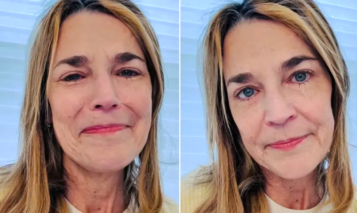 The tragic death of Trayvon Martin due to racial profiling has dominated headlines around the world. But there is another death due to a different form of profiling that has gone virtually unnoticed.
The tragic death of Trayvon Martin due to racial profiling has dominated headlines around the world. But there is another death due to a different form of profiling that has gone virtually unnoticed.
Like Trayvon, Anna Brown was also young and black. She died at age 29 due to the indifference, and gross negligence, of an emergency room doctor who denied her the basic right to seek medical treatment because he formed the opinion that she was a drug seeker.
On Sept. 20, 2011, Anna Brown showed up at St. Mary’s hospital emergency room complaining of acute pain in her ankle and knee. She had sprained her ankle and had visited the emergency room earlier complaining of pain. X-rays of her knees were negative and she was given a prescription for a painkiller.
But Brown knew something was terribly wrong with her. She refused to leave the emergency room. She told hospital security that she could barely stand due to the excruciating pain in her legs.
Brown was literally dragged from St. Mary’s Hospital by police and thrown into a jail cell because the emergency room doctor told police she was a drug seeker. Brown died less than an hour later of a pulmonary embolism — blood clots that traveled from her legs. This is the same condition that took the life of rapper Heavy D.
Brown, who was homeless, fit the doctor’s profile of a “drug seeker” because she was young, black, poor, and in pain.
Once you are profiled as a drug seeker by a doctor or a nurse in the emergency room setting, there is almost nothing you can do or say to change their opinion of you. You will be denied basic health care, and you may lose your life as a result.
If you think what happened to Anna Brown can’t happen to you, read on.
My niece, Shelly, was 5-years-old when she was diagnosed with sickle cell disease. She died at age 20 after visiting a New York hospital emergency room in extreme pain from a sickle cell crisis.
Sickle Cell crisis occurs when the red blood cells form the shape of sickles and obstruct tiny capillaries (blood cells) in extremities and organs, resulting in extreme pain and possible organ damage.
Standard procedure for a patient in sickle cell crisis is to start an IV on them and hydrate the patient with fluids, and blood transfusions, if necessary. The patient is also given pain medication or sedation until the crisis passes.
But standard procedure went out the window when an ER doctor formed the opinion that my niece was drug seeking. He did not start an IV on her. Instead, he gave her an injection of Morphine and sent her home at 4am. She died before sunrise that morning.
By sunset that evening, the hospital officials and attorneys were aware that Shelly’s auntie was a registered nurse. The hospital quickly and quietly reached a settlement with my sister out of court. Shelly’s death was swept under the rug, along with all the other deaths of young black women who are incorrectly profiled as drug seekers, and denied basic health care.
Anna Brown died within 24 hours of being denied treatment because doctors thought she was drug seeking. A good lawyer will get a settlement for her family. But you might not be so lucky.
Jonathan Larsen, director of the Broadway musical RENT, may have also been a victim of emergency room profiling. He died of a ruptured abdominal aorta, after visiting emergency rooms complaining of abdominal pain.
Drug seekers are a common nuisance to emergency room personnel. Visits to hospital ERs by drug addicts seeking a quick fix ends up costing taxpayers millions of dollars a year.
The term “drug seeking” is not a recognized medical disorder or diagnosis. But that doesn’t keep emergency room doctors from making a notation on your chart that reads “THIS PATIENT IS DRUG SEEKING” — even if you don’t ask for pain medicine!
What you can do if you are profiled as a drug seeker and denied health care
If you suspect that you are being profiled as a drug seeker by emergency room personnel, ask to speak with the hospital’s patient advocate. All it takes is for one nurse or doctor to label you as a drug seeker, and the rest of the staff will follow suit. But the patient advocate is supposed to remain neutral, and be non-judgmental.
Among the duties of the patient advocate is listen to your complaints, and mediate between you and the doctor to provide you with access to health care.
Let the advocate know that you believe you are being profiled as a drug seeker, and you will notify your attorney to file a lawsuit for gross medical negligence and pain and suffering.
Hospitals don’t like to hear the words “lawsuit” or “attorney.” The ER staff might tell you to go ahead and call your attorney. But after contemplating the ramifications of that call for a few minutes, their attitudes towards you will change.
Nothing brings down a wall between a patient and an indifferent, uncaring health care provider faster than hearing the word “lawsuit.”
Also, familiarize yourself with websites that have symptom checkers, such as WebMD Symptom Checker.
Before you visit an emergency room, if possible, look up your symptoms on a symptom checker so you can better explain to the ER doctor what you think might be wrong with you. Educate yourself so that an ER doctor or ER nurse can’t simply dismiss your complaints as drug seeking.
If you have been turned away from an ER or denied medical care in the past due to profiling, hire an attorney and sue that hospital for pain and suffering.
If enough patients sue hospitals then maybe hospital administrations will provide training to their ER staff and put a halt to the deadly practice of profiling certain patients as drug seekers. Hopefully, you won’t become another Anna Brown.





